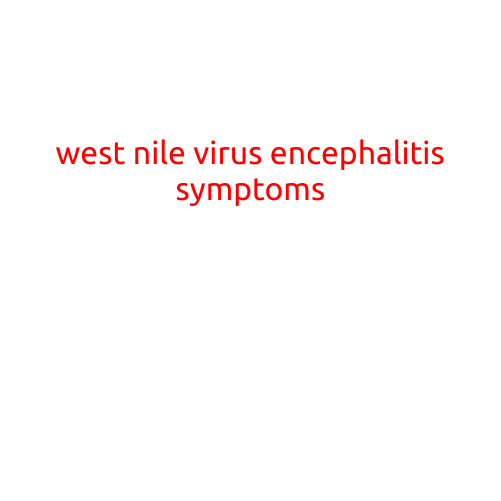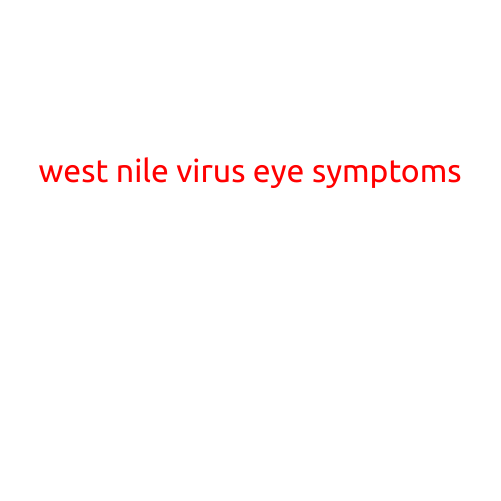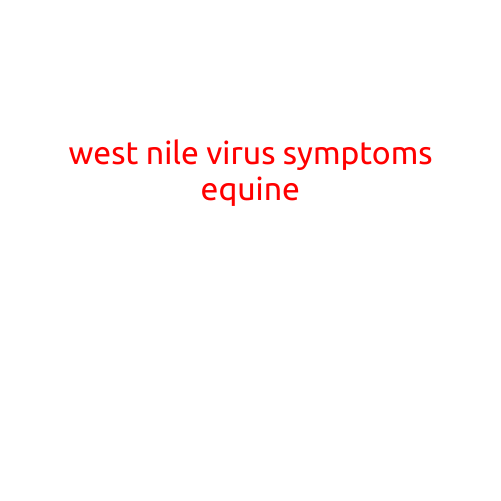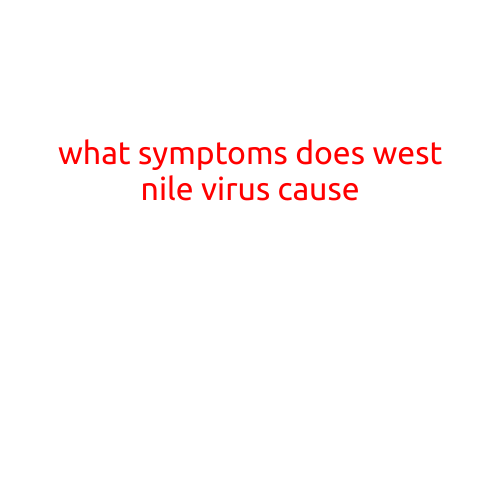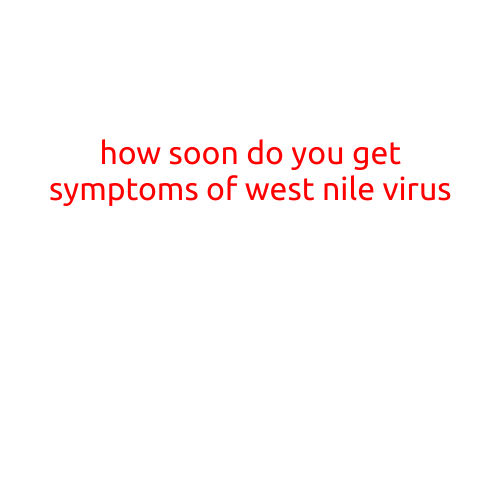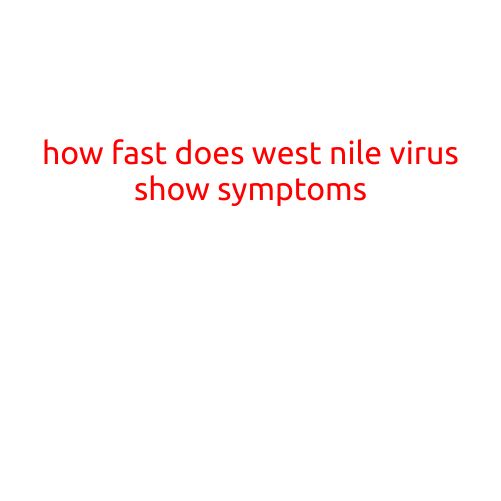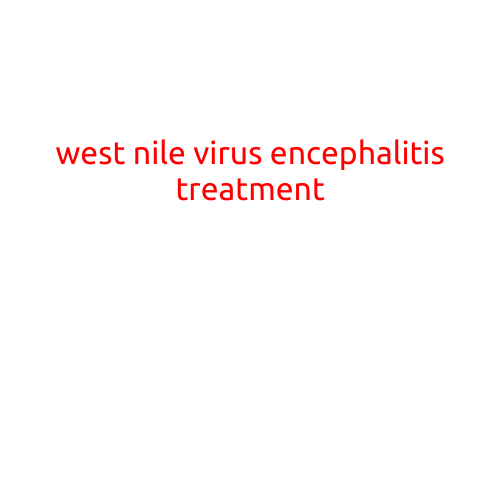
West Nile Virus Encephalitis Treatment: Understanding the Options and Outcomes
West Nile virus (WNV) encephalitis is a serious and potentially life-threatening illness caused by the West Nile virus, a flavivirus that is transmitted through the bite of an infected mosquito. While there is no specific treatment for WNV encephalitis, various supportive therapies and medications can help manage the symptoms and reduce the risk of complications. In this article, we will explore the treatment options for WNV encephalitis and their outcomes.
Supportive Care
The primary focus of treatment for WNV encephalitis is supportive care, which involves managing the symptoms and addressing any underlying conditions that may have contributed to the development of the illness. This may include:
- Hospitalization: Patients with severe symptoms or those who require close monitoring should be hospitalized for treatment.
- Fluid management: Adequate hydration is essential to prevent dehydration and electrolyte imbalances.
- Respiratory support: Patients may require oxygen therapy or mechanical ventilation to assist with breathing.
- Fever management: Medications such as acetaminophen or ibuprofen may be used to reduce fever and alleviate discomfort.
- Anticonvulsants: Medications such as phenobarbital or valproate may be used to control seizures.
- Pain management: Patients may require pain relief medication such as morphine or oxycodone.
- Nutritional support: Patients may require total parenteral nutrition (TPN) or enteral nutrition (EN) to ensure adequate nutrition.
Antiviral Therapy
While there are no antiviral medications specifically approved for WNV encephalitis, some medications may be used to help manage the infection. These include:
- Ribavirin: This medication has been used off-label to treat WNV encephalitis, but its effectiveness is unclear.
- Pleconaril: This medication has been used to treat other viral infections and may be considered for WNV encephalitis, although there is limited data to support its use.
Other Therapies
In addition to supportive care and antiviral therapy, other treatments may be used to address specific symptoms or complications associated with WNV encephalitis. These include:
- Plasmapheresis: This procedure involves removing and replacing plasma, the liquid part of blood, to help reduce inflammation and improve outcomes.
- Corticosteroids: These medications may be used to reduce swelling and inflammation in the brain.
- Surgery: In rare cases, surgical interventions may be necessary to address complications such as hydrocephalus (fluid accumulation in the brain).
Outcomes
The outcomes for patients with WNV encephalitis vary widely and depend on several factors, including the severity of the illness, the patient’s overall health, and the availability and effectiveness of treatment. Some patients may experience a full recovery, while others may have long-term sequelae, such as:
- Neurological damage: Patients may experience permanent damage to the brain, including muscle weakness, memory impairment, and mood changes.
- Chronic inflammation: Some patients may experience ongoing inflammation and immune system activation, which can lead to chronic fatigue, depression, and other symptoms.
- Secondary infections: Patients with WNV encephalitis may be at increased risk of developing secondary infections, such as pneumonia or gut infections.
Prevention
While there is no vaccine available for WNV encephalitis, prevention measures can significantly reduce the risk of infection. These include:
- Avoiding mosquito bites: Wearing protective clothing, applying insect repellent, and eliminating standing water around the home can help prevent mosquito bites.
- Reducing mosquito populations: Eliminating breeding sites and using mosquito control measures can help reduce the number of mosquitoes in the environment.
- Getting tested: If symptoms develop after a mosquito bite, getting tested for WNV infection can help confirm the diagnosis and initiate appropriate treatment.
Conclusion
West Nile virus encephalitis is a serious and potentially life-threatening illness that requires prompt and effective treatment. While there is no specific antiviral therapy approved for WNV encephalitis, supportive care and antiviral medications may be used to manage symptoms and reduce the risk of complications. Understanding the treatment options and outcomes can help patients and their families make informed decisions about care and improve outcomes.
